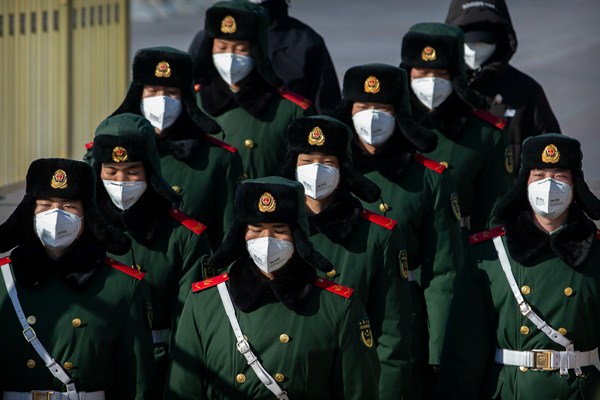When Xi Jinping convened a teleconference meeting Sunday of 170,000 government and Communist Party officials around China to discuss the ongoing coronavirus outbreak, his message was both grim and resolute. China, he said, was facing “a crisis and a big test” with “the fastest spread” and “the widest scope” of any epidemic that has struck his country since the Communist Party took over in 1949. There had been, the Chinese leader admitted, “obvious shortcomings in the response.” But after saying that officials had to “learn lessons” from their mistakes, Xi nonetheless went on to boast that the emergency response had ultimately proven the “outstanding superiority of the leadership of the Communist Party of China and of socialism with Chinese characteristics.”
Limited though it was, Xi’s hint of candor in alluding to the state’s inadequate handling of the outbreak was still a somewhat surprising change from the norm, in which Beijing’s leadership is almost exclusively depicted as the mother of success. It is also worth acknowledging what more and more experts have begun to note in recent days—that once Beijing became truly seized with the gravity of the crisis, its vast and nearly draconian containment efforts helped limit transmission to other parts of China. Although the jury is still out, that may prove to have helped spare the outside world from a far worse impact.
Xi’s exhortation about learning lessons from the crisis, however, is another matter. Predictably enough, it seems that the biggest lesson for Beijing will be the imperious necessity of greater and greater social control. According to Jude Blanchette, an expert in Chinese politics at the Center for Strategic and International Studies, Xi has staked almost his entire reputation on his prowess in governance, even publishing a three-volume tome on the topic, which dominates display shelves in bookshops all over China.

